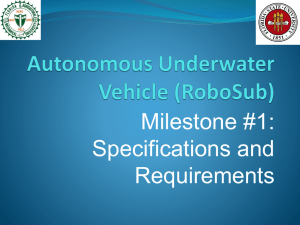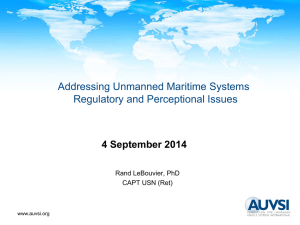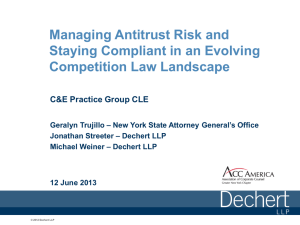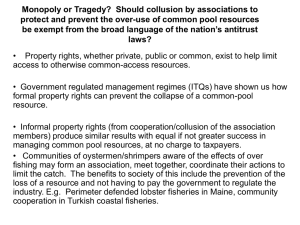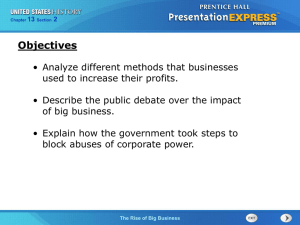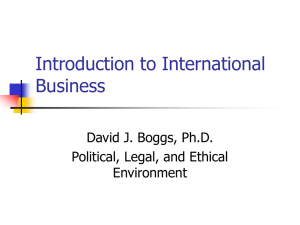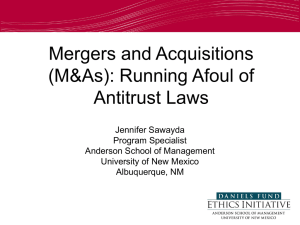Antitrust Policy - Association for Unmanned Vehicle Systems
advertisement
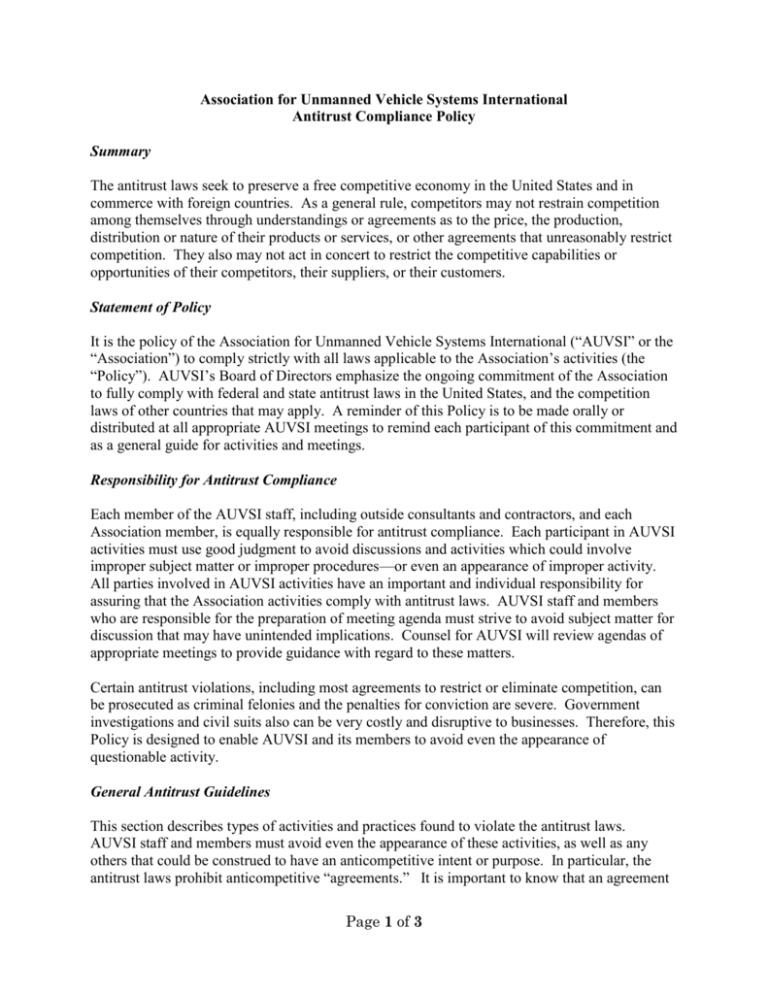
Association for Unmanned Vehicle Systems International Antitrust Compliance Policy Summary The antitrust laws seek to preserve a free competitive economy in the United States and in commerce with foreign countries. As a general rule, competitors may not restrain competition among themselves through understandings or agreements as to the price, the production, distribution or nature of their products or services, or other agreements that unreasonably restrict competition. They also may not act in concert to restrict the competitive capabilities or opportunities of their competitors, their suppliers, or their customers. Statement of Policy It is the policy of the Association for Unmanned Vehicle Systems International (“AUVSI” or the “Association”) to comply strictly with all laws applicable to the Association’s activities (the “Policy”). AUVSI’s Board of Directors emphasize the ongoing commitment of the Association to fully comply with federal and state antitrust laws in the United States, and the competition laws of other countries that may apply. A reminder of this Policy is to be made orally or distributed at all appropriate AUVSI meetings to remind each participant of this commitment and as a general guide for activities and meetings. Responsibility for Antitrust Compliance Each member of the AUVSI staff, including outside consultants and contractors, and each Association member, is equally responsible for antitrust compliance. Each participant in AUVSI activities must use good judgment to avoid discussions and activities which could involve improper subject matter or improper procedures—or even an appearance of improper activity. All parties involved in AUVSI activities have an important and individual responsibility for assuring that the Association activities comply with antitrust laws. AUVSI staff and members who are responsible for the preparation of meeting agenda must strive to avoid subject matter for discussion that may have unintended implications. Counsel for AUVSI will review agendas of appropriate meetings to provide guidance with regard to these matters. Certain antitrust violations, including most agreements to restrict or eliminate competition, can be prosecuted as criminal felonies and the penalties for conviction are severe. Government investigations and civil suits also can be very costly and disruptive to businesses. Therefore, this Policy is designed to enable AUVSI and its members to avoid even the appearance of questionable activity. General Antitrust Guidelines This section describes types of activities and practices found to violate the antitrust laws. AUVSI staff and members must avoid even the appearance of these activities, as well as any others that could be construed to have an anticompetitive intent or purpose. In particular, the antitrust laws prohibit anticompetitive “agreements.” It is important to know that an agreement Page 1 of 3 for antitrust purposes does not have to be written or specifically stated. An agreement can be inferred from conduct, surrounding circumstances and, most commonly, from notes, minutes, memoranda and other documents that, when read together, support a claim that an agreement was reached. Because AUVSI’s activities may involve cooperative undertakings and meetings among actual or potential competitors, the following matters will NOT be discussed by the members or other participants without prior approval of counsel:1 1. 2. 3. 4. 5. 6. 7. 8. 9. 10. Current or future prices or discounts. Conditions of sale, such as credit and payment terms or delivery charges. What constitutes a "fair profit level." Standardization or stabilization of prices. Pricing procedures. The pricing practices of any industry member. Who will serve specific customers, markets or geographical areas. Whether or not to deal with a competitor, customer or supplier. Non-public marketing, product or service plans. Non-public information concerning costs, profits, customers, booked business, etc. Procedures for Meetings To avoid even the appearance of questionable activity, as well as to guard against inadvertent conduct, all appropriate AUVSI meetings will be conducted in accord with the following procedures: 1. 2. 3. 4. 5. 6. 1 There will be a written agenda which will be approved in advance, and topics not on the agenda will not be discussed. There should be no rump or hallway sessions involving the discussion of business matters. All meetings should be "on the record" during the official meeting and per the approved agenda. A standard antitrust reminder will be distributed with the meeting materials, and read or summarized orally at the outset. Antitrust counsel either will monitor the meeting, or be available for questions from AUVSI staff during or after the meeting, as appropriate to the sensitivity of the topics. Minutes will be prepared, sent to AUVSI staff for retention, and approved at the next meeting. In case of doubt about the propriety of a topic of discussion, consult AUVSI staff or counsel. As additional explanation, each of the prohibitions focuses primarily on the competitively sensitive information from or about a member or other industry participant present in an AUVSI meeting, or from or about entities to whom they buy or sell, or with whom they otherwise do business. Page 2 of 3 7. If a member has a reservation concerning remarks or discussion at a meeting, state the reservation during the meeting or to AUVSI counsel after the meeting. Compliance in Other AUVSI Activities AUVSI engages in a range of activities in support and furtherance of its Mission Statement, Vision Statement, and Strategic Goals. These activities are procompetitive and as such, are lawful and permitted under the antitrust laws. These include: member and industry meetings, legislative monitoring and advocacy, promoting the industry, knowledge services including the facilitation of the exchange of information and technology, and interacting with other industry groups and participants. The antitrust analysis of each of these types of activities depends on the specific facts and conduct at issue. Therefore, it is important for AUVSI staff or members to keep this Policy in mind when participating in such activities, and to consult AUVSI staff or counsel with any questions regarding compliance. Conclusion This Policy requires AUVSI to be vigilant to avoid behavior which may raise suspicions of illegal collusion. Antitrust laws are complex and far-reaching and this statement is not a complete summary of all applicable laws. This Policy is not intended to discourage AUVSI’s legitimate and procompetitive activities. Instead, it is intended to highlight and emphasize certain basic precautions to enable AUVSI to conduct its activities with the knowledge that if it complies with the Policy, even the appearance of antitrust problems can be avoided. If you have a question as to whether certain conduct could present antitrust issues, please seek the guidance of AUVSI staff or counsel. Page 3 of 3
